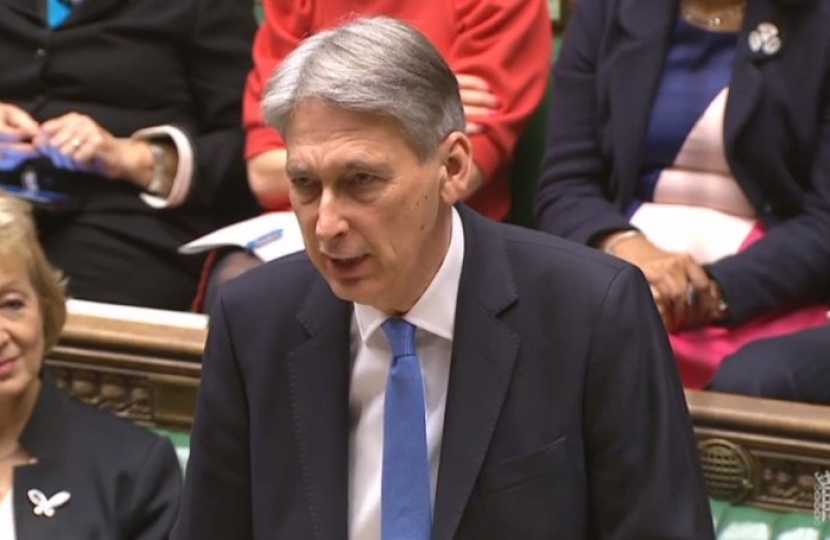
The Chancellor of the Exchequer announced today a brighter future fit for modern Britain, outlining a series of new ambitious changes, starting with welcoming the record level of unemployment created by this government:
1. There are over 32 million people in work – near a record high
The rise in employment over the past year has been driven by full time workers. Unemployment is also at its lowest rate since 1975.
In 2017 growth has remained solid, but slowed slightly at the start of the year. The UK economy is forecast to grow by 1.5% in 2017. It will then grow at a slightly slower rate in the next three years, before picking up in 2021 and 2022.
Inflation is forecast to peak at 3% in the final months of this year, as measured by the Consumer Prices Index (CPI). It will then fall towards the target of 2% over the next year.
2. Borrowing has fallen by three quarters since 2010, but debt is still high
In 2009-10 the UK borrowed £1 in every £4 that was spent. Last year it was £1 in every £16.
The fall in borrowing means we are adding less to our debt every year. However the UK still has a debt of over £1.7 trillion – around £65,000 for every household in the country.
3. An extra £3 billion to prepare for Brexit over the next two years
The money will make sure the government is ready on day 1 of exit. It will include funding to prepare the border, the future immigration system and new trade relationships.
4. £6.3 billion of new funding for the NHS
£3.5 billion will be invested in upgrading NHS buildings and improving care.
£2.8 billion will go towards improving A&E performance, reducing waiting times for patients, and treating more people this winter.
5. Abolishing stamp duty land tax (SDLT) on homes under £300,000 for first-time buyers from 22 November
95% of first-time buyers who pay stamp duty will benefit.
First-time buyers of homes worth between £300,000 and £500,000 will not pay stamp duty on the first £300,000. They will pay the normal rates of stamp duty on the price above that. This will save £1,660 on the average first-time buyer property.
80% of people buying their first home will pay no stamp duty.
There will be no relief for those buying properties over £500,000.
These are only a few of the new radical changes we need as a country to create a country that works for everyone, a fairer Britain in which our young and aspiring first-time buyers can afford to buy a house, not a privilege for the few, more funding for our schools and NHS and additional funding to ensure that we can get the best deal for Britain post Brexit. To find out more click here.
